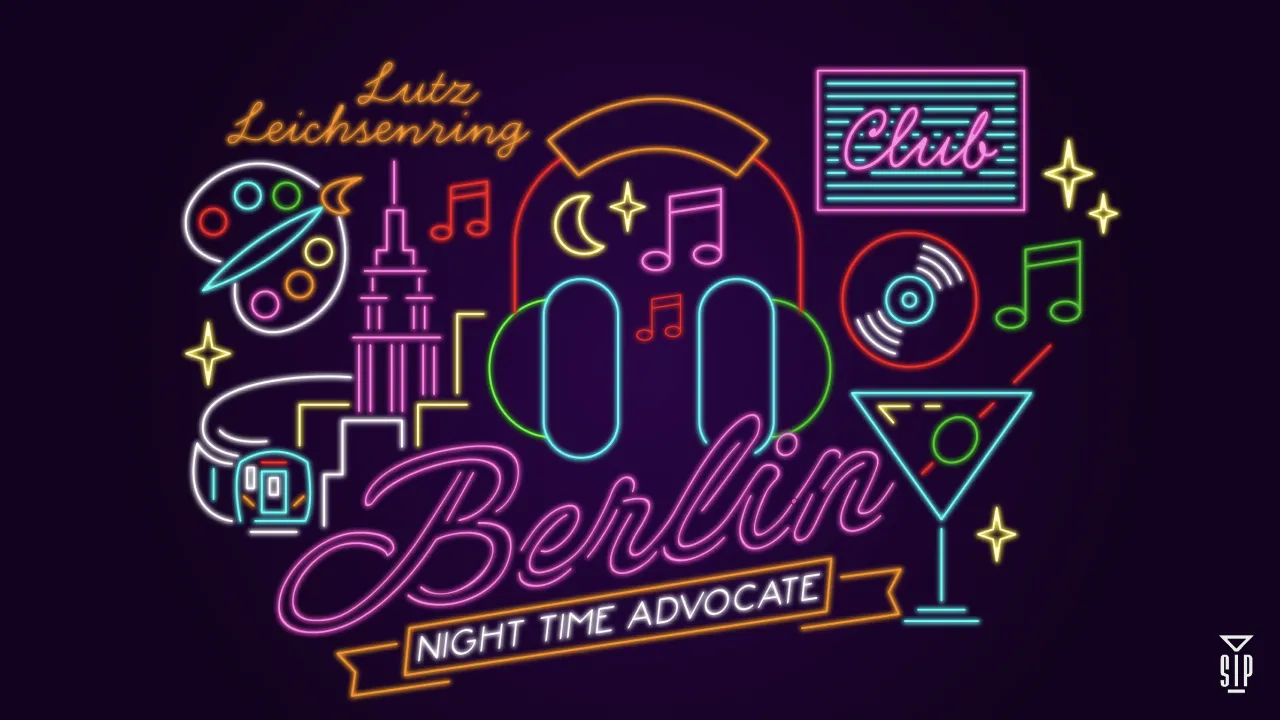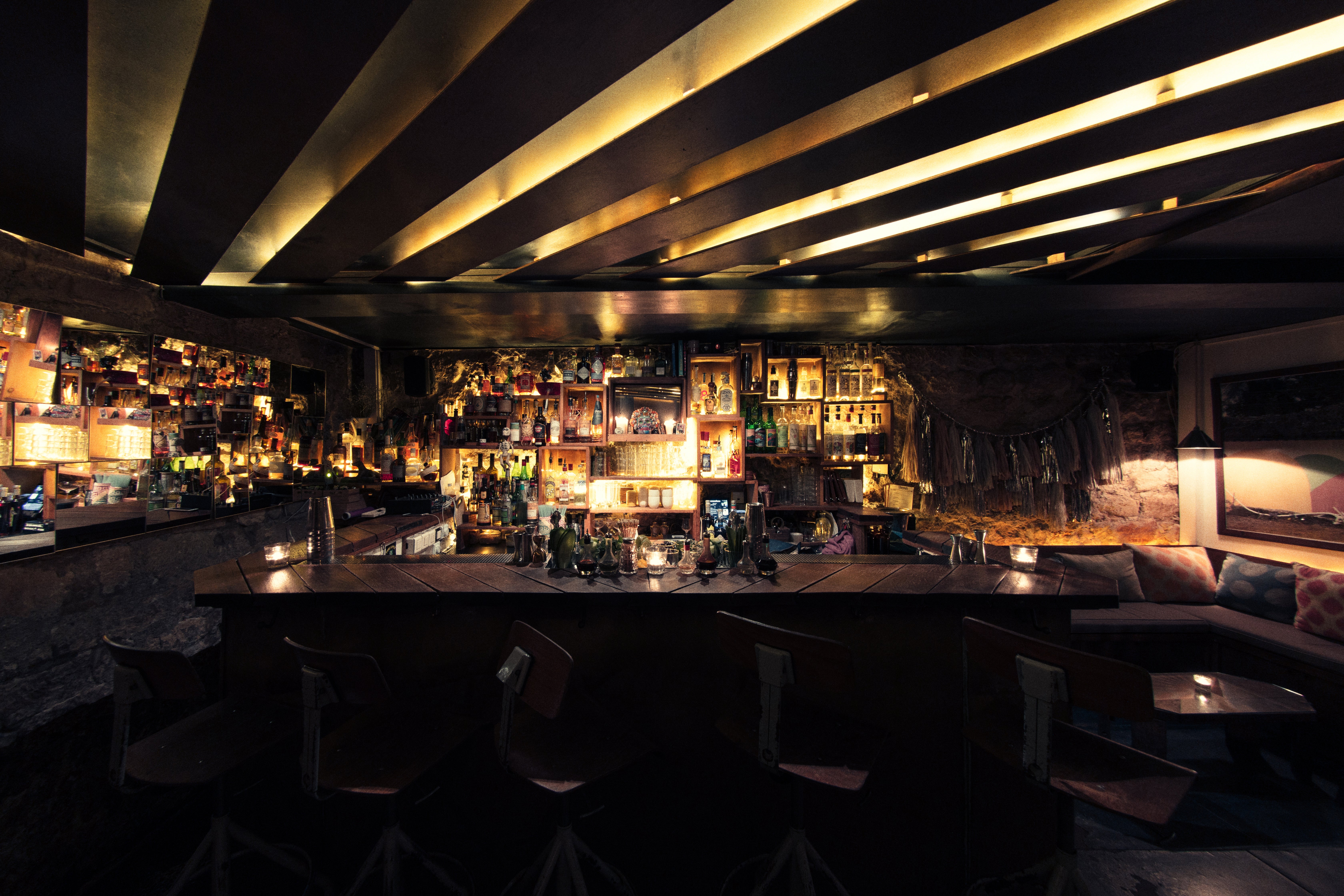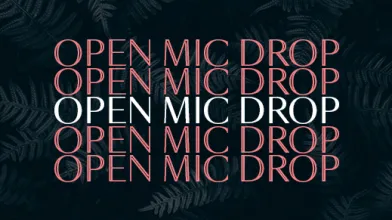With unification came abandoned and ownerless buildings, hangars and underground stations where the wall once stood which were then taken over by the city’s creative community. Think young punks and non-conformists, now free to innovate and transform these spaces into art exhibitions, bars and clubs. “Most of them didn’t even have a legal licence,” he says, “but it still brought vibrancy into the inner city.”
Lutz Leichsenring is one of the world’s leading advocates on protecting nightlife culture and nighttime economies and has been the spokesperson and executive board member for the Berlin Club Commission since 2009. The world's first and largest association of club owners and operators, he is tasked with protecting and advocating for Berlin’s vibrant and diverse club culture.
A true custodian of the night, Leichsenring believes that monitoring a city’s creative space over time is crucial, which is why he launched the ‘The Creative Footprint', an initiative driven by the purpose-driven consultancy agency he co-founded called VibeLab BV.
The big idea is that by gathering data about venues in cities across the world – including New York, Tokyo and Berlin – and developing a rich cultural impact study of the creative scene you can show what makes these spaces special and cities unique.
“What we learned is that there is a correlation between well-educated young people, public transportation and creative space,” Leichsenring says. For example, Berlin has a very good public transportation system that doesn't stop at midnight, which democratises access and allows people to roam freely during the night. In Tokyo, the situation is very different. “The train stops at midnight. You can only take a taxi to come and go to those venues,” he says. “If you want to have an inclusive nightlife where all parts of society can take part, you have to change that.”
A sound idea to improve neighbourly relations
Being a good neighbour is also important. And Leichsenring’s move to establish a soundproofing fund with the city of Berlin has been a particular success. “It helps because it’s something that you cannot solve with mediation programs,” Leichsenring says.
“Neighbours will still complain if they cannot sleep at night.” And with many venues operating on very small margins after Covid-19, help to install soundproofing measures and noise cancelling sound systems can go a long way.
The ‘Creative Footprint’ study did find that the most experimental of Berlin’s 500-odd music venues are at particular risk of gentrification. “A modern city is in constant change,” Leichsenring says, “and a lot of these transformations were not made by creative people.” Often more profitable projects – shopping malls, townhouses, luxury living – come in and push creative spaces out of the city. This frustrates Leichsenring. “I’m furious when I see that spaces have to be shut down just because they wanted to build a parking lot.”
Spending most of his life in Berlin, Leichsenring found that people’s perception of the night can often be negative. The mind perhaps wanders to drugs, criminals and fear. But it’s also where people come together, dance and explore. “The combination of art and culture and communities, I really want people to experience this,” he says. Afterall, there is something primal about it. “It probably started dancing around a fire many tens of thousands of years ago,” he adds, “it is a part of being human.”
Recipe for Berlin nightlife
Approx. 500 music venues (excludes restaurants and bars)
Breakdown:
Music club 40%
Discotheque 4%
Open air venue 4%
Theatre 6%
Music bar 25%
Gallery 6%
Event-venue 15%
Berlin, the techno city where neighbours are kept happy
12 April 2023

In many ways, techno became the sound of the fall of the Berlin Wall as a city divided for 28 years gave birth to a never-before (seen) scene for clubbing and electronic music. And it was no accident, explains Berliner and night advocate Lutz Leichsenring.
Related shows
© World’s Best Bars 2024. All Rights Reserved.
Content to be shared with those over the legal drinking age only - Enjoy responsibly.

Check your email
If we recognize your account, a link to reset your password has been sent to your email address. If you haven’t received it, please check in your spam folder and add to whitelist.
Check your email
A link to activate your account has been sent to your email address. If you haven’t received it, please check your spam folder and add it to whitelist.








